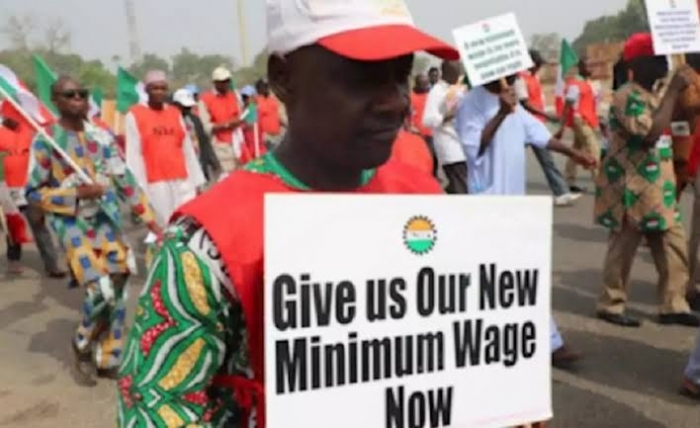For the second consecutive day, the tripartite negotiation on Nigeria's new national minimum wage involving the Federal Government, organized labour, and the Organized Private Sector (OPS) ended in a stalemate. The government and private sector employers made only minimal adjustments to their initial offers.
None of the six governors who are part of the negotiation committee attended the meeting, except for Imo State governor, Hope Uzodimma, who made a brief appearance. The meeting has been adjourned to Tuesday, May 28, 2024.
Organized labour, which initially demanded N615,000, reduced its wage request first to N500,000, and then to N497,000. In response, the OPS increased its offer from N54,000 to N57,000, which the government also matched after a brief consultation.
Labour representatives immediately rejected the N57,000 offer from both the government and the OPS. They criticized the government for not being ready to negotiate seriously, despite evidence-based presentations supporting their demand.
Labour's Argument for a Higher Minimum Wage
Labour unions believe the government can afford a higher minimum wage for several reasons:
1. Government Expenditures: Unions pointed out that the government has been spending large amounts on non-essential items, such as N160 million per member for cars in the National Assembly, N90 billion for subsidizing hajj operations, renovating the Senate chambers, the vice president’s office, and purchasing luxury buses for Customs.
2. Increased Revenue: Since the removal of the petrol subsidy and the floating of the naira, crude oil sales have increased significantly, providing the government with more foreign currency revenue.
3. State Governors' Allocations: State governors have been receiving significantly higher allocations post-subsidy removal, yet workers' conditions have not improved.
4. Policy Impacts: Labour leaders argue that the government's policies, such as subsidy removal and currency devaluation, have exacerbated socio-economic challenges, pushing workers deeper into poverty while benefiting political elites.
5. Equity and Justice: Unions stress that the financial hardships faced by workers are not reflected in the lifestyles of government officials, suggesting a disparity that undermines claims of insufficient funds for higher wages.
Labour representatives voiced frustration over the government's insistence on N57,000, which they equated to a wage reduction since current earnings are generally higher. They highlighted that the government has not provided a detailed breakdown of how the proposed N57,000 would cover essential costs like food, transport, accommodation, and health.
The negotiations will continue next week, with labour unions warning that failure to reach an acceptable agreement may lead to industrial unrest.

































































